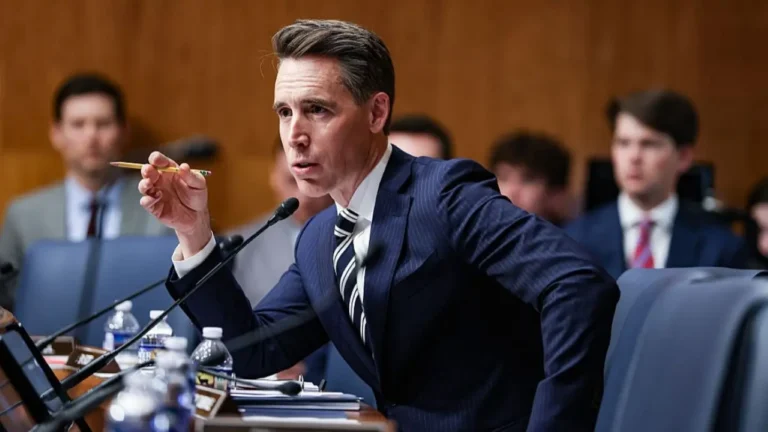Senator Josh Hawley (R‑Mo.) has introduced a bipartisan bill aimed at protecting the Supplemental Nutrition Assistance Program (SNAP) during government shutdowns. The legislation seeks to ensure that benefits for millions of Americans remain uninterrupted even when federal funding lapses.
SNAP, which provides food assistance to low-income families, plays a critical role in U.S. social welfare. During previous government shutdowns, delays in funding caused uncertainty and hardship for recipients. Hawley’s proposal aims to prevent such disruptions in the future.
The bill has drawn bipartisan support, reflecting widespread agreement on the importance of maintaining essential services. Lawmakers from both parties recognize that SNAP benefits are a lifeline for vulnerable populations, including children, seniors, and families struggling to make ends meet.
Under the proposed legislation, SNAP funding would be treated as a protected expenditure during any government shutdown. This would ensure that recipients continue to receive their benefits on schedule, avoiding lapses that could lead to food insecurity.
Supporters say the bill reinforces the U.S. government’s commitment to social safety programs. By safeguarding SNAP, policymakers can reduce the negative impact of political standoffs on everyday Americans.
The legislation also underscores the importance of bipartisan collaboration in addressing urgent social needs. Lawmakers from both sides of the aisle emphasized that protecting basic human necessities should not be politicized.
Hawley highlighted that the bill reflects a practical approach to governance, prioritizing the well-being of citizens over partisan disagreements. Ensuring food security during government shutdowns strengthens public trust in government institutions.
The proposed protection for SNAP could serve as a model for other essential programs affected by funding gaps. Observers say that making key services immune to shutdowns helps maintain stability in communities across the U.S.
SNAP currently serves tens of millions of Americans, offering monthly benefits that help families afford groceries. By shielding the program from shutdown disruptions, the bill could prevent hardship for those who rely on federal assistance.
Advocates note that uninterrupted SNAP funding supports broader economic stability. When recipients can access benefits consistently, local businesses and grocery stores also experience steady demand, creating a ripple effect that benefits the wider economy.
The introduction of the bill comes as lawmakers seek solutions to prevent government shutdowns from affecting critical social programs. Protecting SNAP is widely viewed as a common-sense step that addresses immediate human needs while broader political negotiations continue.
If passed, the legislation would represent a major win for food security advocates and millions of Americans who depend on SNAP benefits. By ensuring uninterrupted support, the U.S. government would reinforce its commitment to helping vulnerable populations, even amid political gridlock.

